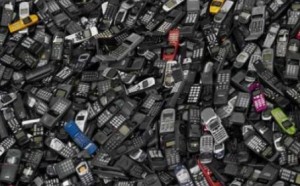
Near a school in the capital of Ghana, Accra, is an electronic waste recycling site. The pollutants from lead and other metals there are 50 times above what is considered to be safe levels.
Sample readings were made, and the results revealed that there is a high contamination of iron, lead, copper, magnesium, etc. in the area. The soil near the school is lead contaminated in such a high level, that action should have been taken a long time ago.
The scrap site contains lots of electronic equipment from Europe and North America, and many children as small as six-years-old work around it. The valuable metal is stripped from the equipment and what’s left is incinerated.
Ghanian researcher Atiemo Sampson reported his findings to 20 global graduate researchers attending the “Solving the E-waste Problem” (StEP) Summer Schools that were held in Europe and were organised by Umicore and Philips.
He says that until recently, there were no regulations in Ghana about management and importation of e-waste.
There are too many people who are thus informally recycling in this waste site, the Agbogbloshie scrap site, to be forced away from the location.
Many people live on what they can get in such scrap sites. Because of that, a solution is difficult to make, and it should focus on improving health safety and environmental standards.
There are more e-waste facilities established in Ghana.
Even though Ghana has signed the Basel Convention, which regulates the management of hazardous waste, there were no rules about it until recently.
Actually, the transportation of electronic waste from Europe and North America is forbidden, but some still somehow reach Africa.
A government report in 2009 showed that around 215,000 tons of electronics were imported in Ghana that year, and 15% of it was waste. It results in a lot of informal recycling, which is dangerous for the health and environment. Responsible recycling should be encourages by a new regulatory system which controls import.
“How to improve efficiency and close the resource loop” was the topic discussed at the StEP.
Ghana isn’t the only place whit reports about recycling at the StEP. Xinwen Chis, from China, told about the cooperation of long-established recycling companies with up-and-coming competitors. Latin American researchers talked about how companies shared practices and encourages regional collaboration.
Philips want their products’ design to make it easier to recover materials. Other companies have also started to make their products more recyclable.
Umicore are leaders in metal recovery. They have a modern facility near Antwerp, where more that 17 types of metal can be extracted from mobile phones, batteries and circuit boards.
The StEP Summer schools project is collaboration between some UN organisations, commercial and governmental bodies, scientific industries and non-governmental organisations.
